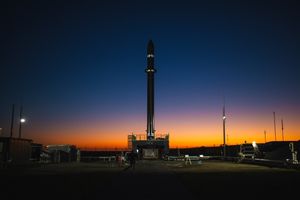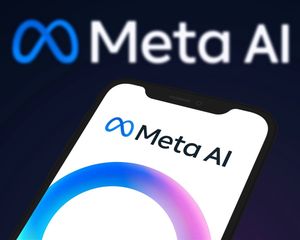- Data support utility of AUTO1/22 approach in preventing antigen evasion in pediatric B-ALL
- Complete responses observed in patients with CD19 negative disease
- No antigen negative relapse seen in responding patients
LONDON, April 26, 2023 (GLOBE NEWSWIRE) -- Autolus Therapeutics plc (Nasdaq: AUTL), a clinical-stage biopharmaceutical company developing next-generation programmed T cell therapies, today announced a data update from the AUTO1/22 study (CARPALL) in Pediatric B-cell Acute Lymphoblastic Leukemia in an oral presentation at the 49th Annual Meeting of the European Society for Blood and Marrow Transplantation (EBMT), which is being held in Paris from April 23 to 26, 2023.
CD19 negative relapse is a major cause of treatment failure after CD19 CAR T cell therapy for pediatric B-ALL. To address this, AUTO1/22 is designed to target both CD19 and CD22 using the fast-off rate CD19 CAR from obe-cel combined with a novel CD22 CAR capable of effective signaling in response to low antigen density1.
Twelve patients with advanced pediatric B-ALL were treated in a study. AUTO1/22 maintained the safety profile of obe-cel alone, with no cases of severe cytokine release syndrome. AUTO1/22 induced MRD (minimal residual disease) negative CR in 83% (10 of 12) patients. This includes 2 (of 3) patients who had CD19 negative disease, demonstrating the efficacy of the CD22 CAR.
Notably, remissions were induced despite the high-risk nature of this cohort (including 4 patients who had failed prior CD19 CAR therapy, 3 patients with a CD19-negative disease component, 3 patients with non-CNS extramedullary disease and 6 patients who had received prior blinatumomab). The 12-month OS and EFS in this study were comparable to the ELIANA study2. Crucially, amongst the 10 responding patients, with a median follow up of 8.7 months, there have been no cases of leukemic relapse or emergence of MRD related to antigen escape.
“We are pleased to see the updated data for AUTO1/22 in pediatric B-ALL,” said Dr. Christian Itin, Chief Executive Officer of Autolus. “AUTO1/22 demonstrated a favorable safety profile and good efficacy in a heavily pre-treated cohort of patients and, importantly, we have not observed antigen negative relapse indicating that the combining of our optimized CD22 CAR design with the CD19 CAR used in obe-cel may be effective in preventing antigen-loss driven relapse in pediatric B-ALL.”
Title: Dual Antigen Targeting with Co-Transduced CD19/22 CAR T cells may Prevent Antigen-Negative Relapse after CAR T Cell Therapy for Relapsed/Refractory ALL
Link to Abstract
Session date and time: Wednesday, April 26, 2023, 11:57 to 12.06 BST
Presenting Author: Dr Giovanna Lucchini, Consultant BMT, Great Ormond Street Hospital, London
1. Kokalaki et al, Mol Therapy; 2023, epub ahead of print; doi: 10.1016/j.ymthe.2023.03.020
2. Maude et al, NEJM, 2018 Feb 1;378(5):439-448. doi: 10.1056/NEJMoa1709866
About Autolus Therapeutics plc
Autolus is a clinical-stage biopharmaceutical company developing next-generation, programmed T cell therapies for the treatment of cancer. Using a broad suite of proprietary and modular T cell programming technologies, the Company is engineering precisely targeted, controlled and highly active T cell therapies that are designed to better recognize cancer cells, break down their defense mechanisms and eliminate these cells. Autolus has a pipeline of product candidates in development for the treatment of hematological malignancies and solid tumors. For more information, please visit www.autolus.com.
About AUTO1/22
AUTO1/22 is a novel dual targeting CAR T cell based therapy candidate based on obe-cel. It is designed to combine the enhanced safety, robust expansion and persistence seen with the fast off rate CD19 CAR from obe-cel with a high sensitivity CD22 CAR to reduce antigen negative relapses. This product candidate is currently in a Phase 1 clinical trial for patients with r/r pediatric ALL. [NCT02443831]
Forward-Looking Statements
This press release contains forward-looking statements within the meaning of the "safe harbor" provisions of the Private Securities Litigation Reform Act of 1995. Forward-looking statements are statements that are not historical facts, and in some cases can be identified by terms such as "may," "will," "could," "expects," "plans," "anticipates," and "believes." These statements include, but are not limited to, statements regarding the continued development of Autolus’ AUTO1/22 program; the status of clinical trials (including, without limitation, expectations regarding the data that is being presented, the expected timing of data releases and development, as well as completion of clinical trials) and development timelines for the Company’s product candidates. Any forward-looking statements are based on management's current views and assumptions and involve risks and uncertainties that could cause actual results, performance, or events to differ materially from those expressed or implied in such statements. These risks and uncertainties include, but are not limited to, the risks that Autolus’ preclinical or clinical programs do not advance or result in approved products on a timely or cost effective basis or at all; the results of early clinical trials are not always being predictive of future results; the cost, timing, and results of clinical trials; that many product candidates do not become approved drugs on a timely or cost effective basis or at all; the ability to enroll patients in clinical trials; possible safety and efficacy concerns; and the impact of the ongoing COVID-19 pandemic on Autolus’ business. For a discussion of other risks and uncertainties, and other important factors, any of which could cause Autolus’ actual results to differ from those contained in the forward-looking statements, see the section titled "Risk Factors" in Autolus' Annual Report on Form 20-F filed with the Securities and Exchange Commission on March 7, 2023, as well as discussions of potential risks, uncertainties, and other important factors in Autolus' subsequent filings with the Securities and Exchange Commission. All information in this press release is as of the date of the release, and Autolus undertakes no obligation to publicly update any forward-looking statement, whether as a result of new information, future events, or otherwise, except as required by law.
Contact:
Julia Wilson
+44 (0) 7818 430877
j.wilson@autolus.com
Susan A. Noonan
S.A. Noonan Communications
+1-917-513-5303
susan@sanoonan.com
Alexandra Deschner
+ 32-490-58-35-23
a.deschner@autolus.com





